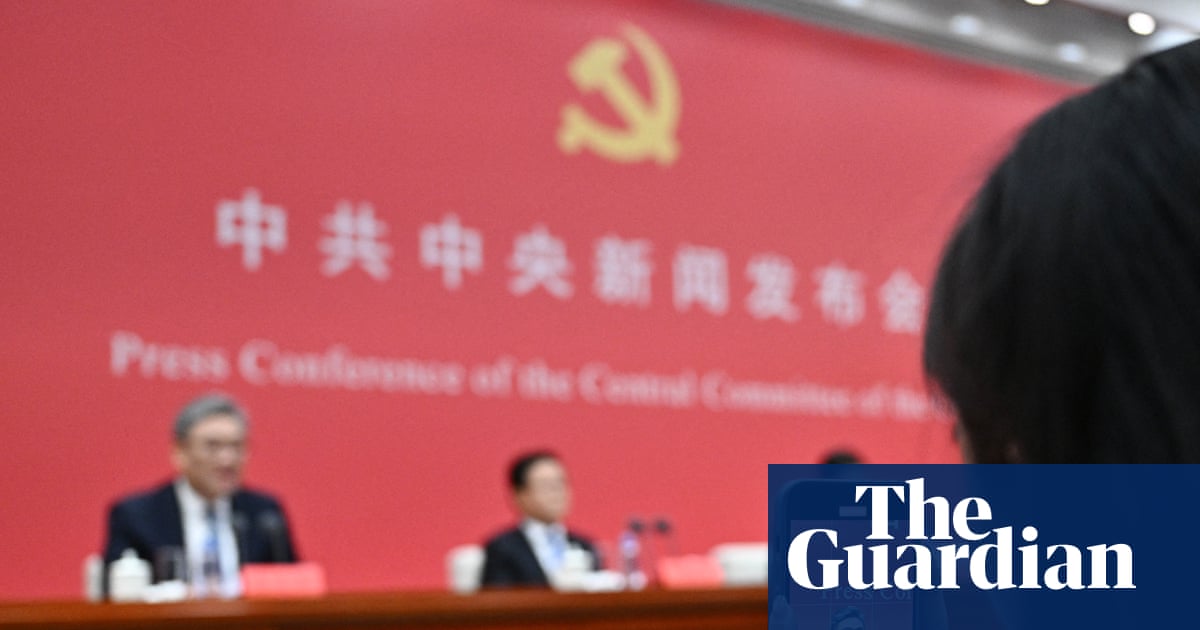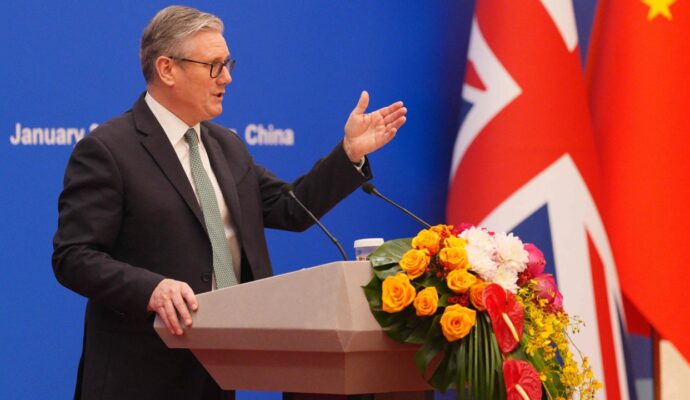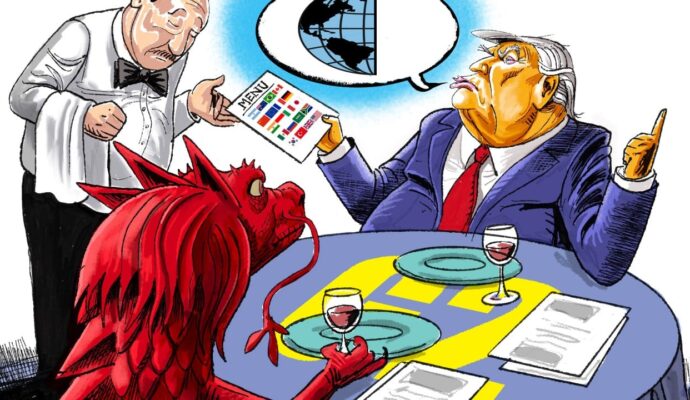
China’s Communist party has approved early plans for its next major political blueprint, after a week-long meeting in Beijing.
A press conference on Friday morning marked the end of China’s fourth plenum, a key meeting in the country’s political cycle and a crucial one in the development of its 15th five-year plan, which is due early next year.
Recommendations for the next plan were broadly outlined in Friday’s press conference and an earlier communique. Although many of the priorities are no secret, analysts and markets are watching keenly to see how the world’s second-biggest economy plans to take on the next half-decade.
1. AI, tech and space
China has “significantly increased” its tech investment, said Yin Henjun, minister of science and technology, with AI seeing numerous breakthroughs. AI and computing power would continue to be a major area of focus from 2026 onwards, but Yin also added that stronger regulations, laws and ethical standards were needed.
China is a key player in the global race for dominance in artificial intelligence. Officials said there were now 4,500 Chinese companies in the sector.
The plenum also designated space sector as a top priority for the first time, pledging to turn China into a leading spacefaring nation over the next five years, and promised “huge development” of high tech industries, including nuclear fusion.
2. Competition with the US
Officials on Friday noted a “complex and severe” international environment, but called for dialogue with the US rather than “decoupling and confrontation”. Xi Jinping and Donald Trump are set to meet next week, with tariffs likely to be on the agenda.
“However, within crises lie opportunities, and crises can be transformed into opportunities,” said one official.
3. A ‘birth friendly society’
The Chinese Communist party continues to battle against China’s stubbornly low birthrate. Officials made it clear they’re not giving up yet, saying they would continue to push for a “birth friendly society”, making childcare and education more accessible.
They also pledged to improve elderly care, while also slowly raising the retirement age to counter the economic impact of the rapidly ageing society, and tapping into the so-called “silver economy” of the older demographic.
Health officials praised China’s medical system but noted that it remained “unevenly distributed” and pledged improvements.
4. Crackdown on ‘involution’
China’s economy has been having a rough time, facing very high youth unemployment rates, and crises affecting key sectors including housing and electric vehicles.
On Friday officials pledged to continue their crackdown on “involution” – a reference to fierce internal competition that has produced damaging price wars and oversupply.
China must become a unified national market, officials said, pledging to boost regional economies and address local government debt, stagnating wages and deflationary pressures. Some of this is being addressed by massive government stimulus measures, but officials questioned the long-term sustainability of these.
5. Personnel changes
One key observation came not from the policy announcements but the roll call of attendees. The meeting had its lowest attendance in decades, particularly from the People’s Liberation Army (PLA), which has been the target of a years-long anti-corruption drive.
Before the meeting, nine PLA officials were confirmed to have lost their jobs and party positions, including He Weidong, a vice-chair of the Central Military Commission – a role shared by two people who are second only to Xi Jinping himself in terms of overseeing the military.
He Weidong has now been replaced by Zhang Shengmin, the military’s anti-corruption chief, sending a signal that the anti-corruption drive has “no finish line”, as officials said on Friday.
Additional research by Lillian Yang


